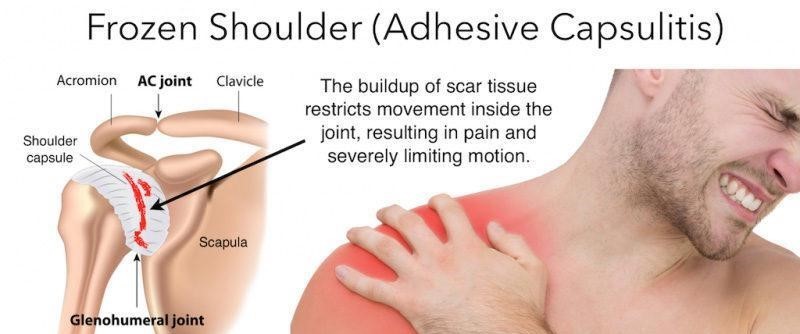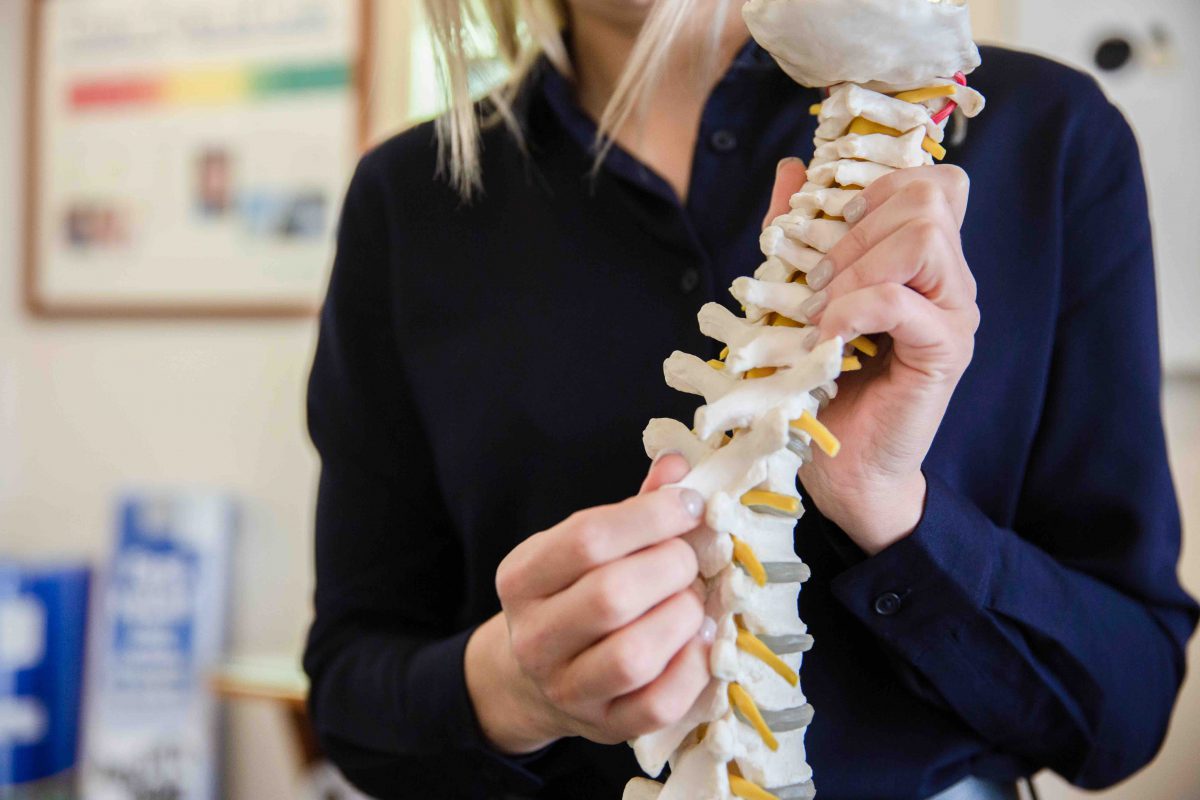What is a frozen shoulder?
Frozen shoulder can be felt as stiffness, pain and limited range of movement in the shoulder joint. These symptoms can occur when the shoulder capsule stiffens.
Typically, frozen shoulder only affects one shoulder.
Frozen shoulder is thought to cause scar tissue formation in the shoulder joint, which makes the shoulder capsule thicken and tighten. This then leaves decreased room for the shoulder to move, which leads to less movement.
Frozen shoulder commonly occurs in people aged between 40-60 years of age.

Causes of frozen shoulder
The cause of frozen shoulder is unfortunately not fully understood. It is thought to be due to a recent injury or fracture that had caused some degree of immobility or altered use of the shoulder.
Risk factors for frozen shoulder
- Over 40 years of age.
- Female – 70% of people with frozen shoulder are women.
- Recent surgery or arm fracture.
- Diabetes – 2-4x more likely to develop frozen shoulder for unknown reasons.
- Previous stroke.
- Overactive or underactive thyroid.
- Heart disease.
3 stages of frozen shoulder
- Phase 1 – Painful stage: Shoulder pain develops without any obvious physical cause. The pain gradually worsens over time, creating shoulder stiffness with painful movement. Pain during this phase is typically worse at night.
- Phase 2 – Frozen stage: The shoulder reaches its maximum restricted motion here. The pain is constant and moving the shoulder past its restricted range can cause sharp pains in the shoulder joint. Increasing stiffness and severely limited range of motion occurs here. Pain usually does not worsen in this stage. During this phase individuals will struggle to reach behind their head or into their rear pocket.
- Phase 3 – Thawing stage: Movement in the shoulder may begin to improve here. Pain may fade during this stage, but occasionally will recur.
Symptoms of frozen shoulder often interfere with everyday tasks such as driving, dressing, or sleeping. Attempting to put your hand in your rear pocket may become impossible. Certain work activities may also be affected in some cases.

If untreated, on average frozen shoulder symptoms may last 2-3 years in total before subsiding. In some cases, it may be much less or much more, depending on the severity.
Treatment for frozen shoulder
The aim of treatment is to ease pain and stiffness. It is also crucial to keep range of motion of the shoulder as good as possible while waiting for the condition to clear.
Chiropractic & frozen shoulder
The shoulder joint more often than not involves a spinal connection. This area is closely linked to the neck and middle back. While a patient will benefit from direct shoulder treatment, they also need to have proper spinal alignment and function to obtain optimum results.
A patient whom suffers from frozen shoulder will overcompensate for this lack of movement by using the neck and upper back to reach for things due to the decrease in shoulder motion. This compensation can lead to issues in those areas of the body. Restoring proper function to all areas is critical for long-term improvement of frozen shoulder.

A physical examination will be performed to help assess the patients range of motion. Your health care professional will observe as you perform specific movements and measure range of motion of the shoulder joint.
If you or someone you know is suffering from frozen shoulder, and the associated neck or upper back issues make sure to let your chiropractor or other health care professional know. If you have any questions please don’t hesitate to contact us on 9792 1945.

